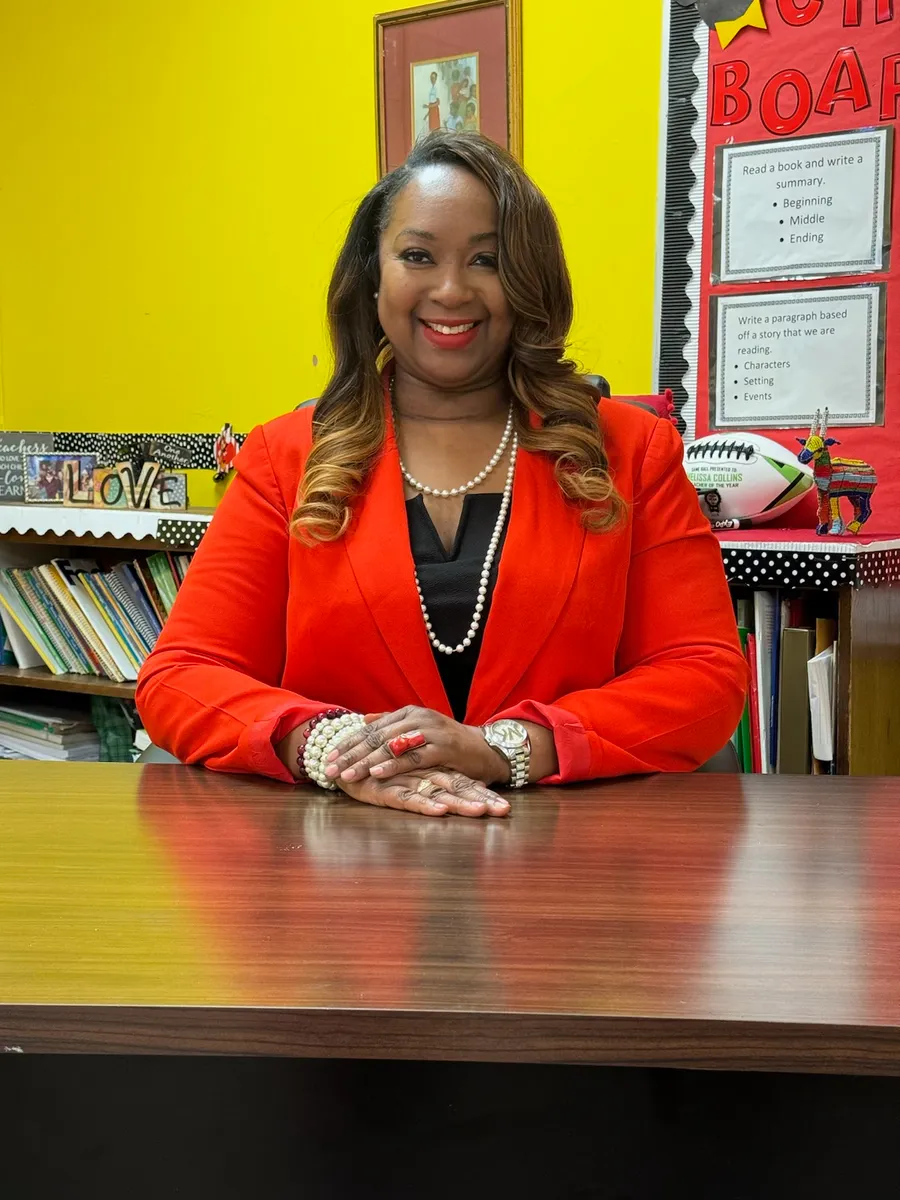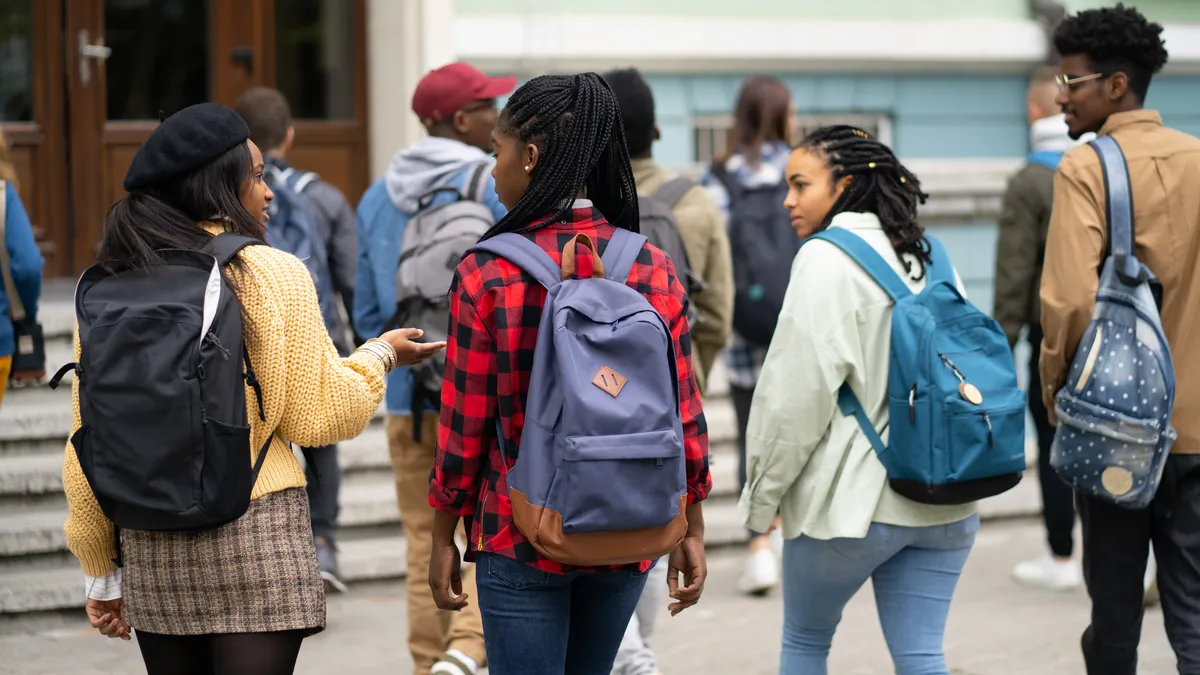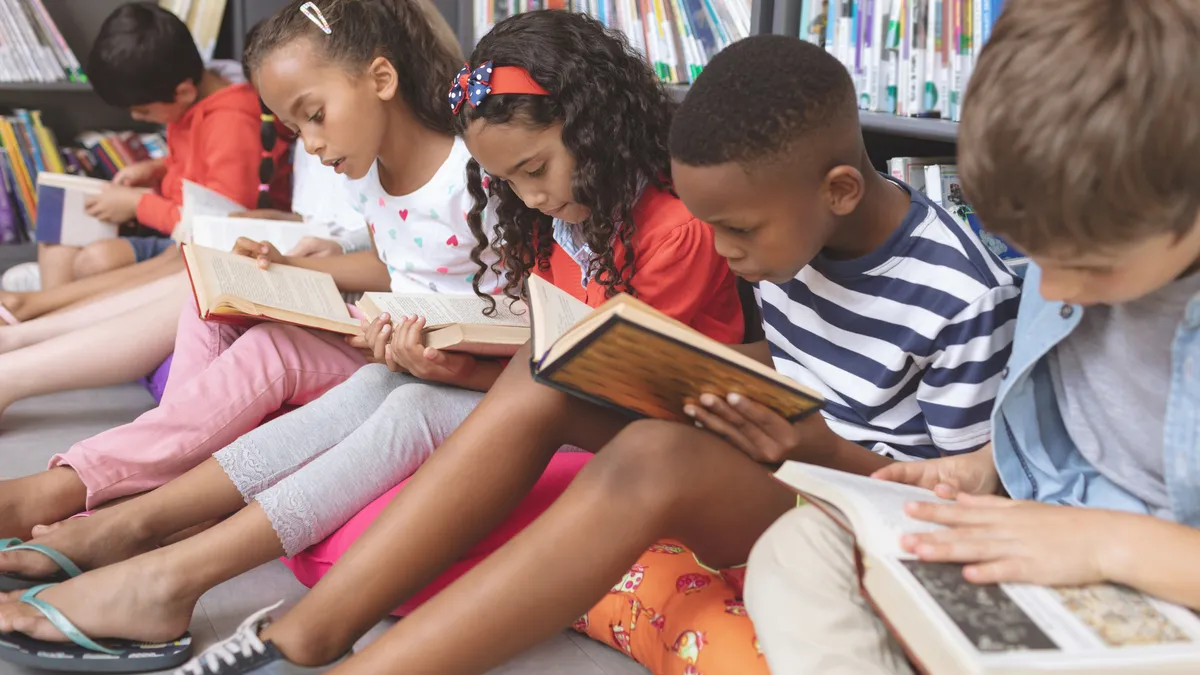Melissa Collins teaches 2nd grade at John P. Freeman Optional School in Memphis. She is the 2023 Tennessee Teacher of the Year and a member of the National Network of State Teachers of the Year.
When I was 8 years old — around the same age that my grandfather was forced to give up school — I dreamed of becoming an educator. This dream was fueled by a burning desire, even then, to help uplift and provide hope to Black and brown students — those who look like me and come from communities like mine, but don't often see themselves or their culture reflected in curriculum.

Looking back on the 25 years since I achieved that dream, I never would've imagined that I'd face so many challenges in this profession that I continue to care so much about. Unfortunately, due to censorship laws and other policies aimed at undermining honesty in education, it has become increasingly difficult to navigate in this critically vital space.
Instead of focusing on building stronger and healthier minds, teachers are now forced to abide by regulations, no matter how harmful, that hinder our ability to help those students who need it most.
If we are to truly reach and support all students, it's crucial that we provide them a safe and inclusive environment that values and appreciates them, regardless of their identity. Every child deserves to feel heard, loved and respected. It is our responsibility as educators to teach students about historical facts and make sure that we're not promoting personal or political views in our classrooms.
The attacks on honest education are having real impacts on my classroom.
As a Black teacher, I'm now often questioning or second-guessing myself as it pertains to censorship. For example, am I allowed to read my students a book that teaches Black and brown children about their identity? During Black History Month, do I avoid some topics just to make sure that I'm not promoting a personal or political agenda in my classroom?
These censorship efforts and the questions they raise are disturbing. I didn't choose this profession so I could deny Black and brown students the right to know their history. In fact, I chose to teach in Memphis, a predominantly Black and brown community, so I could do the opposite — make a difference in the lives of all my students by sharing all that I know about our history and culture.
My dream, going all the way back to my own elementary days, has been to inspire students to be their best.
Recently, while compiling reading materials for my class, I was hesitant to list all my classroom's books on our school website. I considered simply removing some books just to avoid conflict. At the same time, it also felt completely unnecessary to publish this list online for the public, since most of the books were from the school library or other highly recommended educational sources.
As I began listing the books, though, I realized there were many that I cherished and that my students identified with. It wouldn't be fair to take these books away from them. Books are essential in expanding children's perspectives, helping them learn about diverse cultures and people, and developing a love for reading.
Books inspire and motivate students, aid in understanding history, and help students view themselves positively.
In Tennessee, books about Ruby Bridges have been banned, because they describe angry White people from a child's perspective. That happens to be “real-world content.”
Instead of removing these kinds of books, we should use this literature to help teach students how to address racial issues and develop solutions. People may ban books but not historical facts. These stories are relevant to our lives, and we can't sugar-coat or erase them.
I also feel a particular sense of responsibility to help Black and brown students learn about their history and culture. When students gain knowledge about themselves, it helps them become more creative and make a positive impact on the world.
Recently, I had a conversation with my grandfather, who regrets that he did not have the opportunity to complete his 3rd-grade education. Our conversation made me realize the importance of being a better teacher and helping my students plant firm roots from which to grow into productive members of society.
I'm committed to providing a nurturing environment for my students, especially for those who may come from marginalized communities. It's my responsibility to educate all my students about their history and culture, particularly my Black and brown students.
As a nation, we must establish safe and supportive environments for all children. I strongly believe in the potential of children from marginalized communities, and I'm convinced that we can unleash their brilliance if we provide them an education that is challenging, honest, fair and inclusive. And, importantly, one that enables them to see themselves succeed.






















